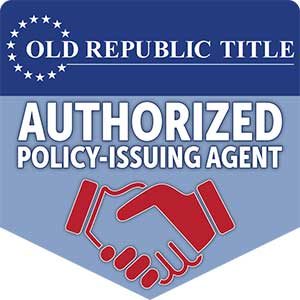Our clients often ask us what is and is not covered by title insurance. Here is a helpful breakdown of what title insurance is and what is covered in New Jersey.
What is Title Insurance?
If you are looking to buy a home and are unfamiliar with title insurance, it is probably a good idea to become familiar with it. Buying a home is a big financial decision and working with a title insurance provider will provide you security and peace of mind in the long run. We’ll break down some of the basics of what you should know about title insurance and what it can protect you from.
Who Is Covered by Title Insurance?
There are two types of title insurance. A loan policy only protects the lender’s interests. Almost all lenders will require you to buy this. An owner’s policy covers the buyer against costs like back property taxes that could come with the house. An owner’s policy is optional, but without one, you’d be financially responsible for resolving unexpected title issues that come up.
What Does Title Insurance Cover?
Once a property title search has been completed and ownership of the property has been verified, the homeowner will then be issued title insurance. This insurance protects both property owners and lenders from losing the property due to any title defects such as liens, lawsuits, unpaid taxes, fraud, or errors as well as covering the costs of defending against future, unforeseen claims on the property.
Some of the things that a typical title insurance policy will cover include:
- Ownership by another party
- Undisclosed heirs
- Incorrect signatures on documents, as well as forgery and fraud concerning title documents
- Defective recordation (flawed records or record-keeping)
- Restrictive covenants (terms that reduce value or enjoyment), such as unrecorded easements
- Deeds and wills by persons lacking legal capacity
- Issues of rightful possession of the land
- Rights of divorced parties
- Encumbrances or judgments against property, such as outstanding lawsuits or liens
- Defective acknowledgments due to improper or expired notarization
Ideally, a property title search will weed out any of these issues and the title insurance will act as a safety net. However, there are situations where past occurrences with the property rear up and at that point you will be glad you have a title insurance policy in place.
What Does Title Insurance Not Cover?
While not all title policies cover the same things, there are a number of items that are unlikely to be covered in a general title insurance policy. This includes:
- Any defects created after the issuance of the policy, or defects that you create.
- Issues arise as the result of failing to pay your mortgage.
- Issues arise as the result of failing to obey the law or certain covenants.
- Specific taxes and assessments.
- Violating zoning or building ordinances related to land use, improvements, or environmental protection.
- Restrictive covenants that limit the use of the property.
- Condemned land.
- Claims from others who might have rights to your property if a body of water (river, stream, lake, etc.) is on or near the property.
It’s always important to communicate with your title company about these potential issues and to make sure you fully understand what is and is not covered under your policy. If you have any other questions about what title insurance does or does not cover, contact Scott Title in Shrewsbury, NJ today.
Risks of Not Having Title Insurance
Forgoing title insurance opens the home buyer to significant risk if a title defect pops up after closing on the home. Consider a buyer who purchases their new home, only to find out that there is unpaid property tax from a prior owner. A surprise financial burden like this can be devastating, but with title insurance, you would be able to mitigate any problems like this should they come up. Given that most people purchase a home to spend their life in, it’s no surprise that people may not be familiar with the immense benefit of title insurance. Speak to a title company early in the home buying process to eliminate these risks.





